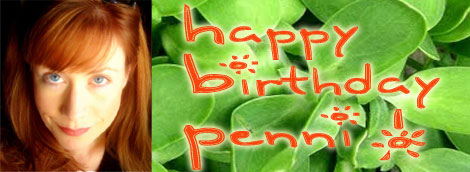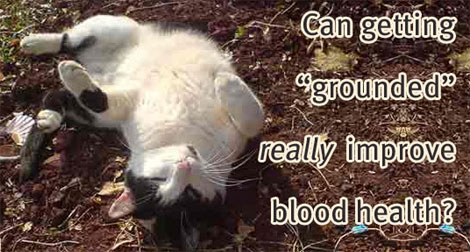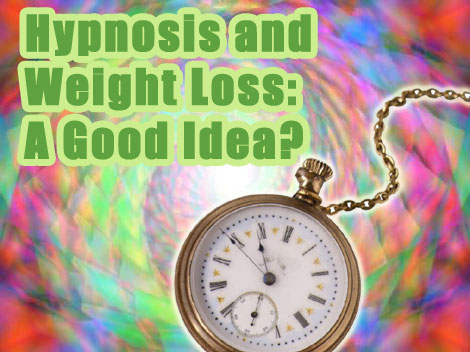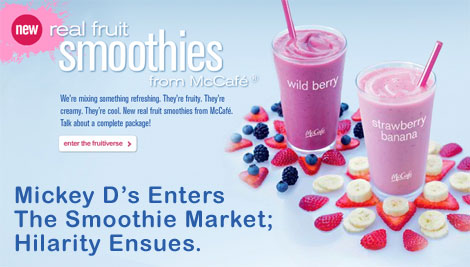Just a quick update for those in the Pittsburgh area:
My dear friend Melissa has planned some fun raw food gatherings that you may be interested in checking out. The first is a raw food dinner and demo, the second is a wild herb walk.
Raw Foods Demo and Dinner?

We don't always announce birthdays of friends and family here. But this particular individual is an integral part of the raw food community and we want you all to meet her!
Today is the birthday of the radiantly beautiful Penni Shelton! For those of you who don't know Penni, she's an incredible woman; she's got a heart of gold and is filled with love and compassion. She has been a loving friend of Wendi and member of the Pure Jeevan family for a very long time.
Read more: Penni Shelton: Raw Food Community Builder and Supporter!
 After our Oklahoma stop, we had back-to-back visits with family. During our 40-day tour, we had a great time at every place we stayed. There's something extra special about being with family, however. KDcat especially loved this part of the trip, where she could stay up late and sleep in every morning.
After our Oklahoma stop, we had back-to-back visits with family. During our 40-day tour, we had a great time at every place we stayed. There's something extra special about being with family, however. KDcat especially loved this part of the trip, where she could stay up late and sleep in every morning.
Our first stop was St. Louis, Missouri, to see Grandma and Grandpa Dee, and Aunt Jeanne. We did some shopping at Whole Foods, bought lots of organic produce, and prepared some raw dishes to share with everyone. We purchased a young coconut and KDcat used Grandpa's hatchet to show everyone how to open a young coconut. Jim's mother learned to make raw hummus, without chickpeas, and even agreed to be a guest chef for a Makin' It Monday raw food recipe video! So, we'll be sharing that with all of you in the near future! Aunt Jeanne loved the hummus, as well as the raw tacos we created. She seems to have a liking for raw foods, so who knows...you may be seeing another Dee online sharing info about raw foods in the future ! Grandpa is always a fan of apple pies, so he thoroughly enjoyed the pie we created during our visit. Grandpa and KDcat also spent some time talking about music, a passion for both of them.
Our second stop was Geneseo, Illinois, to visit with Aunt Cindy, Uncle Ray (who had to work during our visit), and cousin Destiny. KDcat and Destiny don't see each other very often, so this was a real treat. Destiny's a sweet girl who became a vegetarian over a year ago (she's the only vegetarian in her home)! That's a huge thing to do when you're just a young teenager and we're proud of her for taking her health into her own hands (and for saving the animals!). We took a lot of pictures while visiting. In the photoset, you'll see that somehow a monkey crawled onto KDcat's back and hung around with her most of one day (in which she was dressed up in quite the outfit!). That monkey found its way into all kinds of interesting places (in a park, playing on the slide, swing, etc., and even in the house playing the piano -- and I caught him trying to steal some of my bananas!). The weather was beautiful during our visit, so we spent a lot of time outside, walking and enjoying the beautiful time together. At this stop we created a raw apple crumble, which Aunt Cindy later modified with blueberries. We're gently nudging her to make a video of the recipe she created, so we can all see how it's made! It sounded delicious.
Read more: Family Visits During Our 40-Day Tour: St. Louis, MO, and Geneseo, IL
A worker at our local Food Co Op was talking about making his own dehydrator. I mentioned that I saw a link to a site that told about how to create one and I'd share it with him. When I found the link, just now, I thought maybe some of you might be interested in checking it out, as well.
?The page isn't vegan-friendly (there is ground meat in the one picture), but if you've been wanting a dehydrator and don't want to spend the money on the more expensive ones...this might be a great option.
Wow, what a strange episode we have for you tonight! As you'll see, it was a really bizarre day here at Pure Jeevan. Wendi's out of town with her friends Rawbin and Jeff (owner of NaturalZing) helping NaturalZing with their booth at the Green Festival in Washington, DC. Too bad she's away; she missed opening the mail today and seeing a highly unusual letter from the Department of Homeland Security! The topic? Well, it turns out Pure Jeevan is under governmental surveillance -- and our chief surveillor, one "Larry Ferguson," actually decided to introduce himself and make some comments about our Bananas episode (which we hadn't even released yet!). Sounds highly unusual, I know. But, he was actually doing us a favor. Take a look (vid shows me reading part of his letter, then the banana episode proper):
As you heard, Larry writes: "I believe your viewers deserve to know, for example, that bananas have roughly 100 calories each, are high in Vitamin C, and fiber. You might also want to mention that they contain considerable levels of B6, which is good for metabolic functions as well as nervous and immune systems. B6 also helps you produce antibodies to fight diseases and plays a strong role in brain function and even maintaining hormonal balance. Your body can't store B6, btw, so you need to get it every day. Of course, most people will know already about the great potassium levels in bananas. Potassium is great for controlling blood pressure and certainly reduces risks of heart problems. Bananas also contain manganese, which your viewers probably already know about after your persimmons video."
Here's a rare question a Pure Jeevan family member recently asked:
I eliminated 100lbs on raw food, but I've been "stuck" for the last year. I feel absolutely amazing when I can stick to raw food, but it's sooo hard when time is limited!
First, congratulations on your success with the raw food lifestyle! You must be feeling like a new person, even though you feel a bit stuck right now.

Jim here... A week or two ago, there were some videos floating around in raw food circles that seemed to indicate that one's blood health (and, by extension, one's overall health) can be quickly and dramatically improved through a practice known as grounding. I realize that, metaphorically, people commonly use the term "grounded" to indicate a kind of level-headedness -- e.g., a "down to earth" attitude. But, in the literal sense, it's an electrical term used to describe a physical connection to the earth. I'm no engineer, but my understanding is that these connections basically discharge things or people from any static electricity build-up (as in those bracelets that computer repair techs wear), or serve as a conduit through which other electricity may pass (as in lightning rods).
 That the idea of "grounding oneself" should take root so strongly in natural health circles is unsurprising. In theory, it seems to make a lot of sense. I'm just as intrigued by it as the next person, I suppose. If we spend most of our lives wearing rubber-souled shoes, walking on shag-carpeting, sitting suspended off the ground on static-filled things like couches and office chairs, often running various electrical equipment, basking in EMFs from radio waves and Dish-network signals and cell phone radiation... sure, it makes sense that we're probably all experiencing some heretofore unprecedented (evolutionarily speaking) human body exposure to significant electrical phenomena. My car reminds me of this daily with a (friggin' annoying!) shock each time I get out and close the door. But, as the "double-rainbow guy" so succinctly put it: ?What does it mean
That the idea of "grounding oneself" should take root so strongly in natural health circles is unsurprising. In theory, it seems to make a lot of sense. I'm just as intrigued by it as the next person, I suppose. If we spend most of our lives wearing rubber-souled shoes, walking on shag-carpeting, sitting suspended off the ground on static-filled things like couches and office chairs, often running various electrical equipment, basking in EMFs from radio waves and Dish-network signals and cell phone radiation... sure, it makes sense that we're probably all experiencing some heretofore unprecedented (evolutionarily speaking) human body exposure to significant electrical phenomena. My car reminds me of this daily with a (friggin' annoying!) shock each time I get out and close the door. But, as the "double-rainbow guy" so succinctly put it: ?What does it mean

Recently, the wife of a friend of ours decided that she wanted to lose 20-25 pounds. As far as we know, she follows pretty much a "Standard American Diet." We've heard that she doesn't care for red meat, but she does eat other meats, plus a good deal of dairy (which, we believe, she regards as a healthy food choice). She's apparently tried a number of exercise regimens, and a few fad diets, with no luck on losing these 20-25 pounds. (Frankly, we haven't seen her many times, but would not have guessed that she had 25 pounds to lose. But, we'll save "self image" as a topic for for further posts.) In any case... Frustrated, she decided to see a hypnotist!
Our friend accompanied his wife to the initial consultation. He said it was actually interesting. The hypnotist basically sits you down and walks you through some fundamental psychology, demonstrates a few of the primary principles of suggestion (e.g., showing you how easy it is to, say, imagine the sourness you would experience when biting into a slice of lemon), and then lays out how the program works.

Jim here... We're at an interesting juncture here at Pure Jeevan. For the moment, we're still living a little more "in the box" than we plan to in the near future. One example of this is my personal excitement about Fridays. Oh, I suppose Fridays will always seem special to me somehow. But after years of the corporate routine, Friday remains the most welcome weekday.
Friday signifies the end of the five-day stretch during which most people do whatever they happen to do to pay the bills, to keep (raw!) food on the table, and a roof over their heads. While I know of and admire many people for whom the work week is generally meaningful and rewarding, I suspect that the majority of people go through it simply for the money. Sure, many "like" their job (or, perhaps more aptly, "don't hate it"), but I have met too few who absolutely love their jobs. (Come to think of it, I've met quite a number who actually do hate their work!)
Read more: TGIF!, and a Recap of Major Pure Jeevan Activities

Welcome to Day 3 of Raw Salad Dressing Week here on Pure Jeevan. As you'll see, I "got a little creative" once again -- and again got lucky! I'll let you watch the video for the backstory on this one, but I'm happy to report that a nice, hearty, sweet, holiday-appropriate salad dressing was created. So, check out the video, and then I'll make a few closing comments.

Driving to work today, we noticed that McDonald's has launched its latest product aimed at the health-conscious demographic. In case you haven't heard, you can now purchase fruit smoothies at Mickey D's! Sounds like real progress, right? Well, let's take a closer look and see if they're really as healthy as they sound.
McDonald's is not exactly known as a healthfood destination. After all, a typical lunch at the Golden Arches these days might well include something like an Angus Bacon & Cheese, Large Fries, and a Large Coke. ?Together, that's 1,600 calories, 64 grams of fat, and 2,400 mg of sodium, 99% of which is from highly cooked, highly processed, non-organic, factory-farmed, nutrition-barren source materials . (Add on another 75 calories and 550 more mg of sodium if you plan to go through, say, five packets of ketchup along with those fries.) (Source) And, some people eat that daily!
Read more: The Anatomy of a McSmoothie & Pure Jeevan Calls for New Term for "Smoothie"

